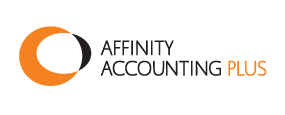The way that employers pay and report superannuation contributions has changed this year with the introduction of SuperStream.
Businesses that haven’t yet considered what the SuperStream changes will mean for their business will need to take steps now to ensure they are compliant with the new rules on time.
What is SuperStream?
SuperStream introduces a new standard for all employers whereby super contributions need to be paid electronically and also details of contributions need to be sent to the employee’s super fund in an electronic format.
The new system enables employers to use a single channel when making contributions, regardless of how many funds they are dealing with. Along with other changes, this simplifies the process and reduces costs by eliminating unnecessary variation and complexity.
The new system effectively replaces cheques, letters and manual forms. As such, SuperStream will impact most on small businesses which still use cheques or their own personal system for paying superannuation contributions. As often is the case, it is these businesses that will carry most of the compliance burden of this new system.
A self-managed super fund (SMSF) also needs to comply with SuperStream if it receives contributions from an eligible employer.
When does it start?
The start date depends on the number of employees (including permanents, casuals and part–timers) that the business has on 1 July 2014.
For businesses with 20 or more employees on 1 July 2014 (deemed to be medium to large employers), contributions will need to be made using the new standard by 1 July 2015. However businesses with 19 or fewer employees on 1 July 2014 (deemed to be small employers) have until 1 July 2016 to comply.
All businesses need to be fully compliant with SuperStream by 1 July 2016.
What employers need to do to comply
There are two parts to SuperStream that employers need to comply with:
- Electronic payment of super contributions
Employers have the option of either using software that conforms to SuperStream, or using a service provider who can meet SuperStream on their behalf. These include:
- upgrading existing payroll software; or
- using an outsourced payroll function or other service provider; or
- using a commercial clearing house or the free Small Business Superannuation Clearing House (for employers with 19 or fewer employees).
Software providers such as MYOB have upgraded their payroll modules to allow employers to comply with SuperStream.
- Electronic transmission of contributions data
As information about super contributions must be provided electronically to the employee’s super fund in a set format, employers should obtain the following information from employees at least 60 days prior to implementing SuperStream:
- an electronic service address (ESA) for the super fund
- BSB and account number for the super fund
- the super fund’s ABN
The ATO has provided a “look up” register of e-commerce information for large super funds (known as the Fund Validation Service). However this is not available for SMSFs and therefore employers contributing to SMSFs will need to request this information from the relevant employee.
Exemptions
Business owners who contribute solely to their own SMSF are exempt from the new system. This is because they would usually fall under the definition of a “related party employer”, who is generally defined as an employer that is controlled by one or more members of the SMSF or their related parties.
In addition, SuperStream only applies to employer contributions and member benefit rollovers between large super funds and rollovers from a large super fund to an SMSF.
Also, personal contributions, super fund pension (and lump sum) payments are exempt from the new system.
Therefore if a SMSF is not receiving employer contributions, it does not need to comply with SuperStream.
ATO compliance
The ATO has advised that during the initial stages of SuperStream compliance, their focus will be on education and support for employers and super funds.
However employers and super fund trustees, especially SMSFs, should take steps as soon as possible to ensure they are ready for SuperStream, so that the payment of employer super contributions can be made under the new standard.
A lack of care or diligence in compliance may leave employers or super funds exposed to significant ATO penalties.

